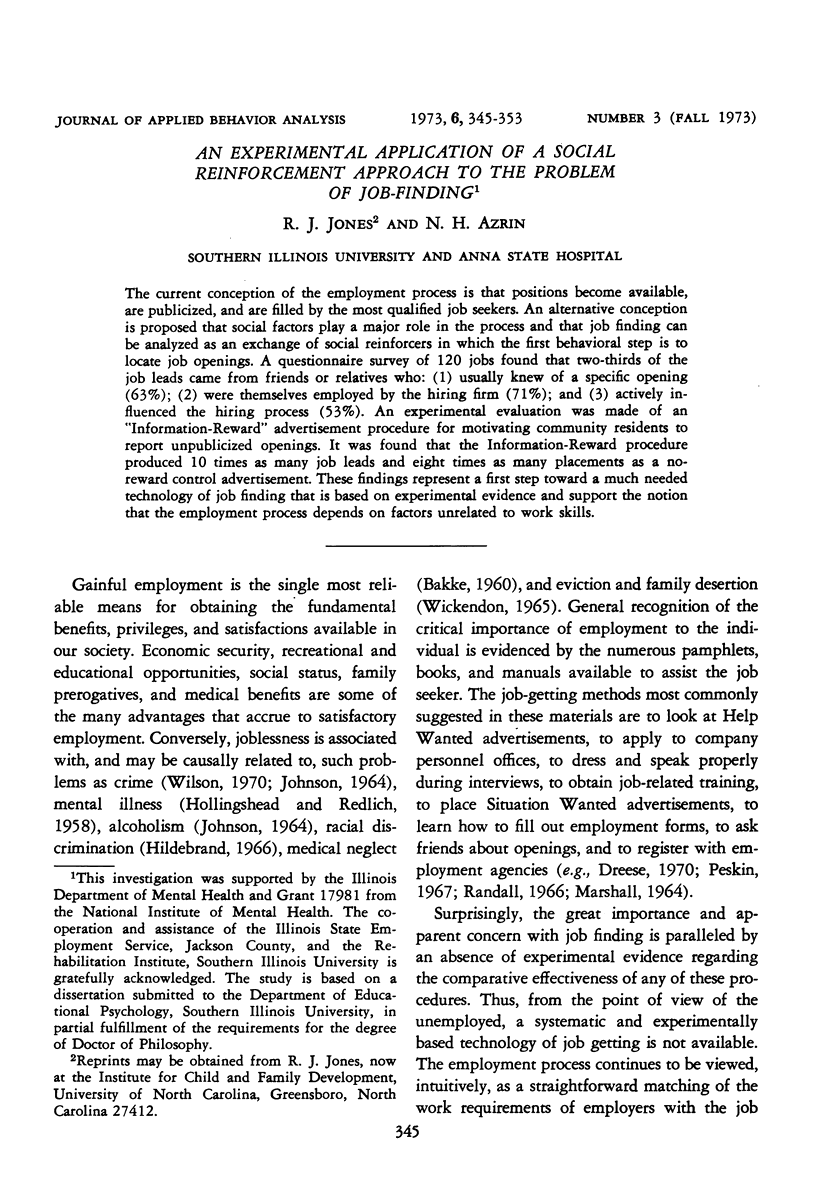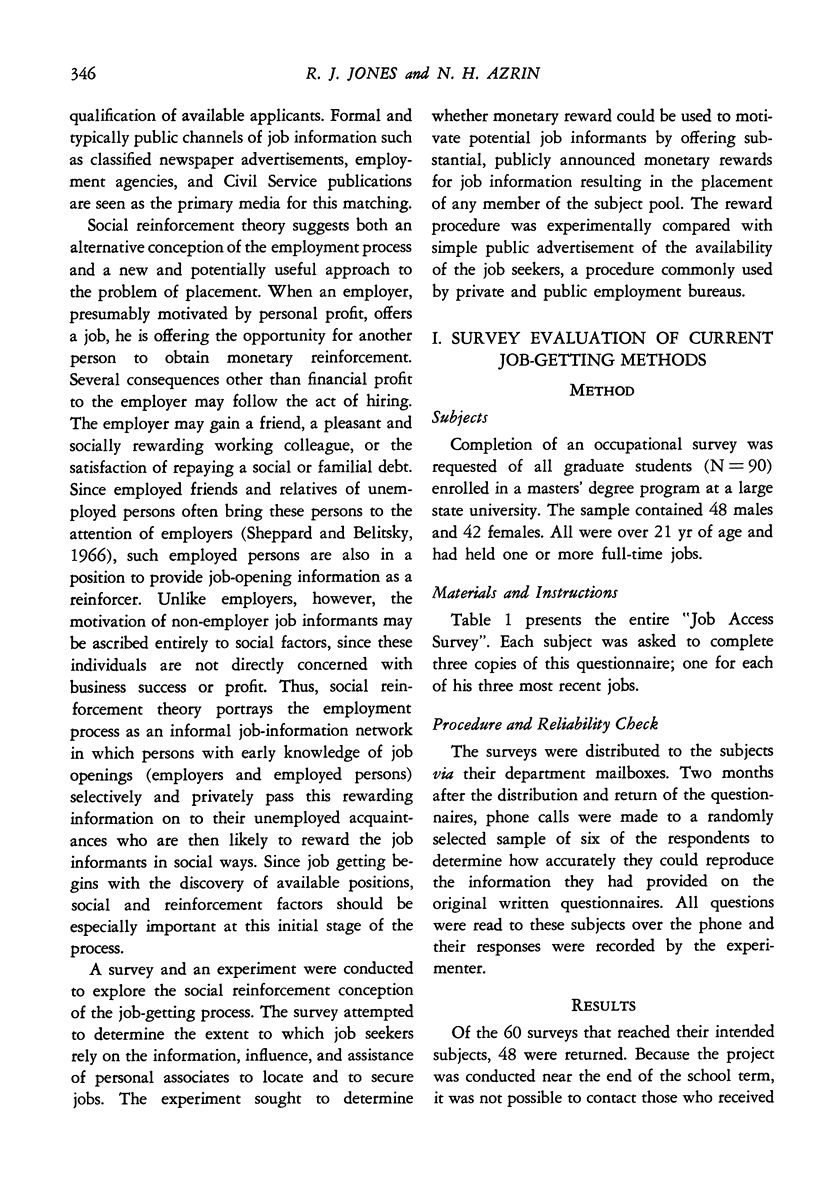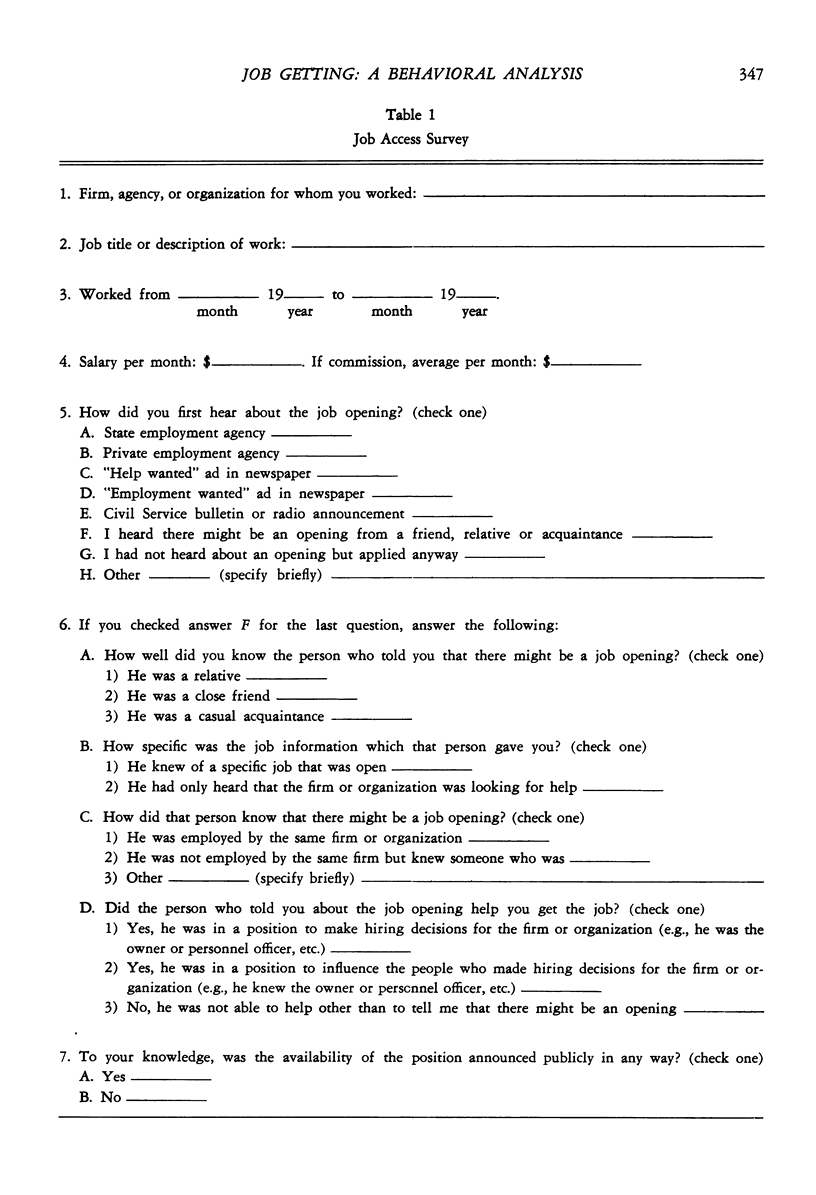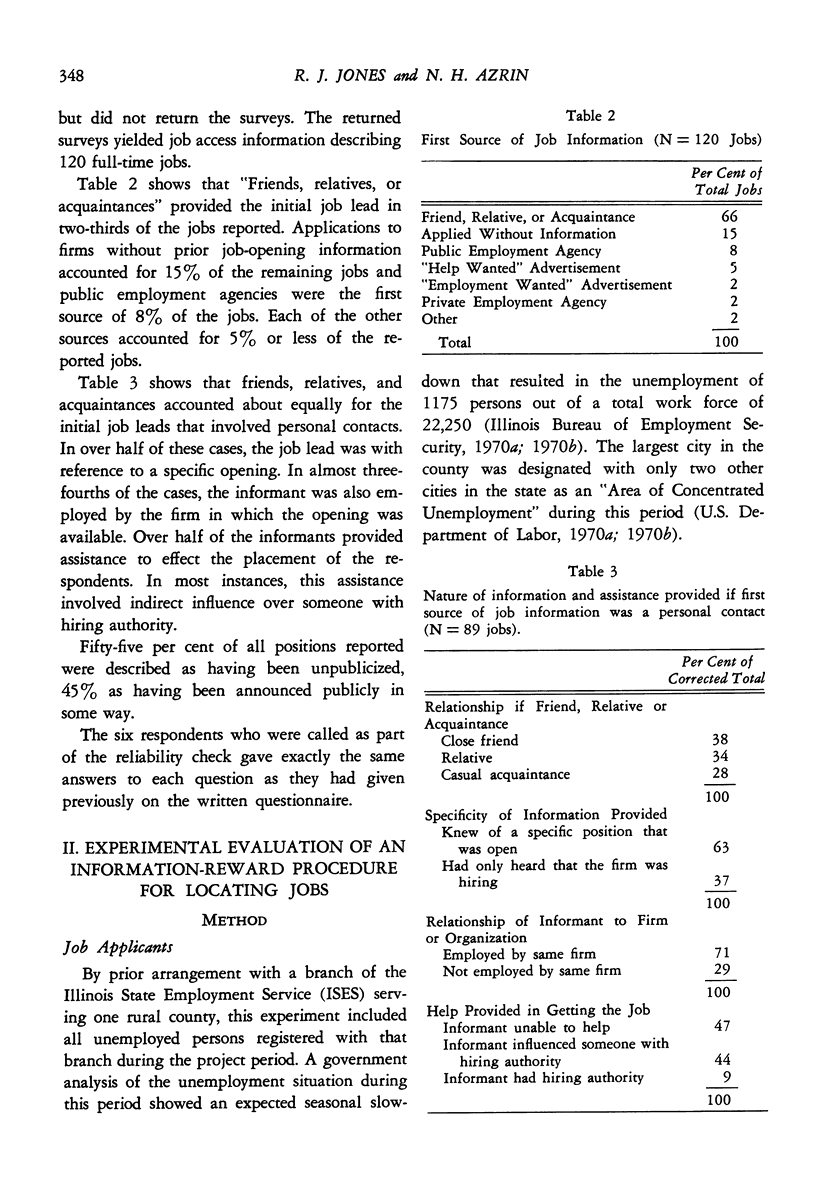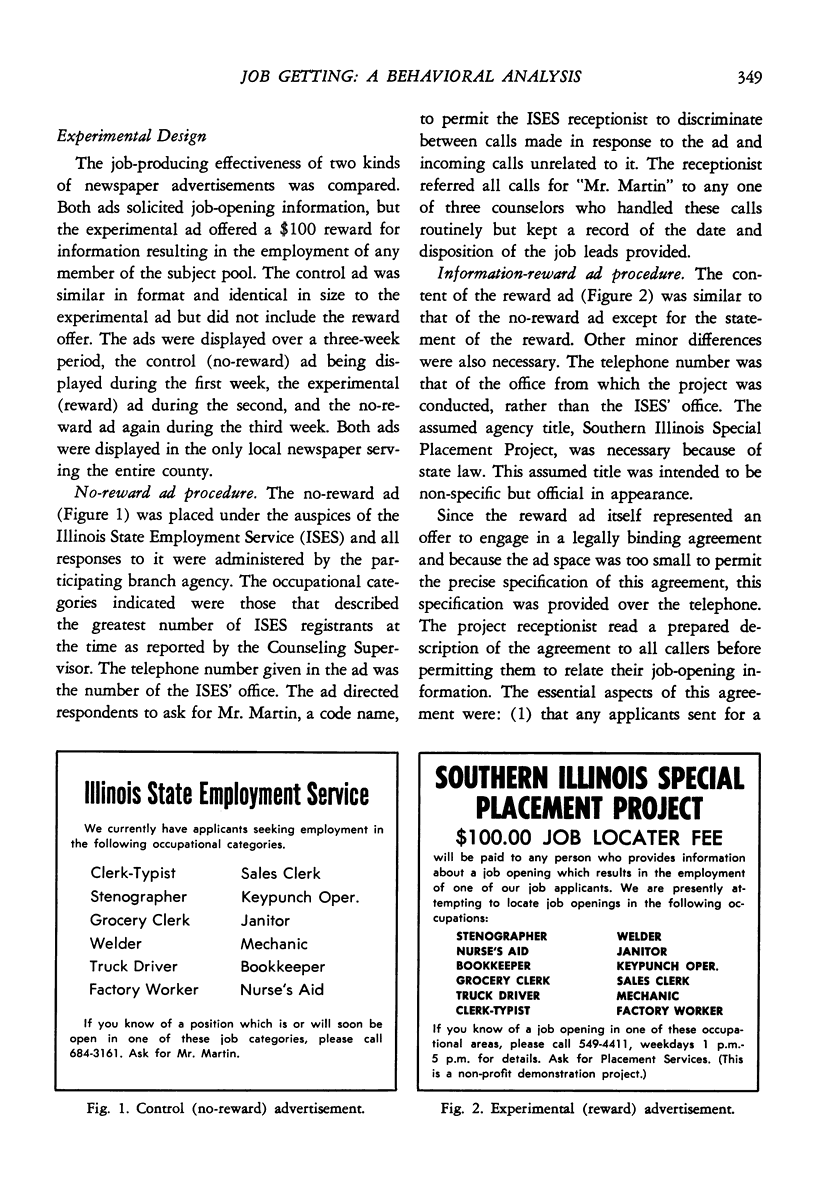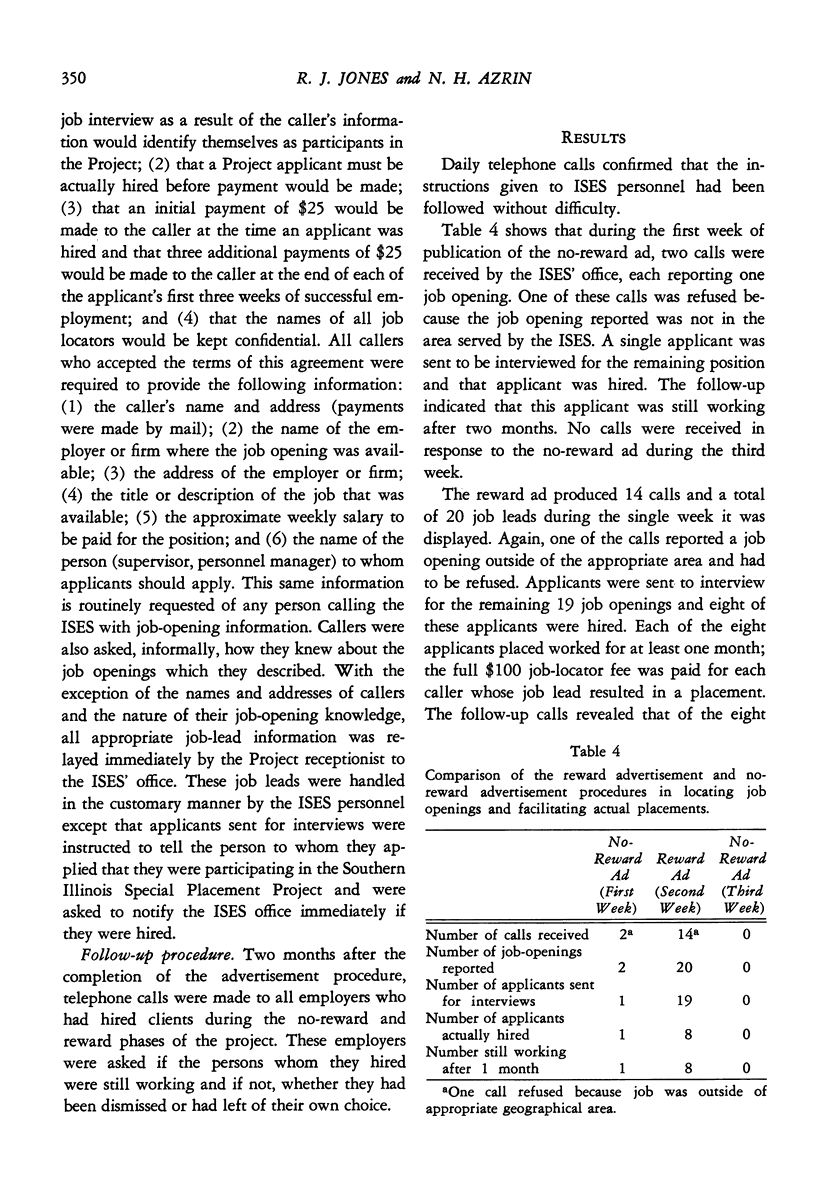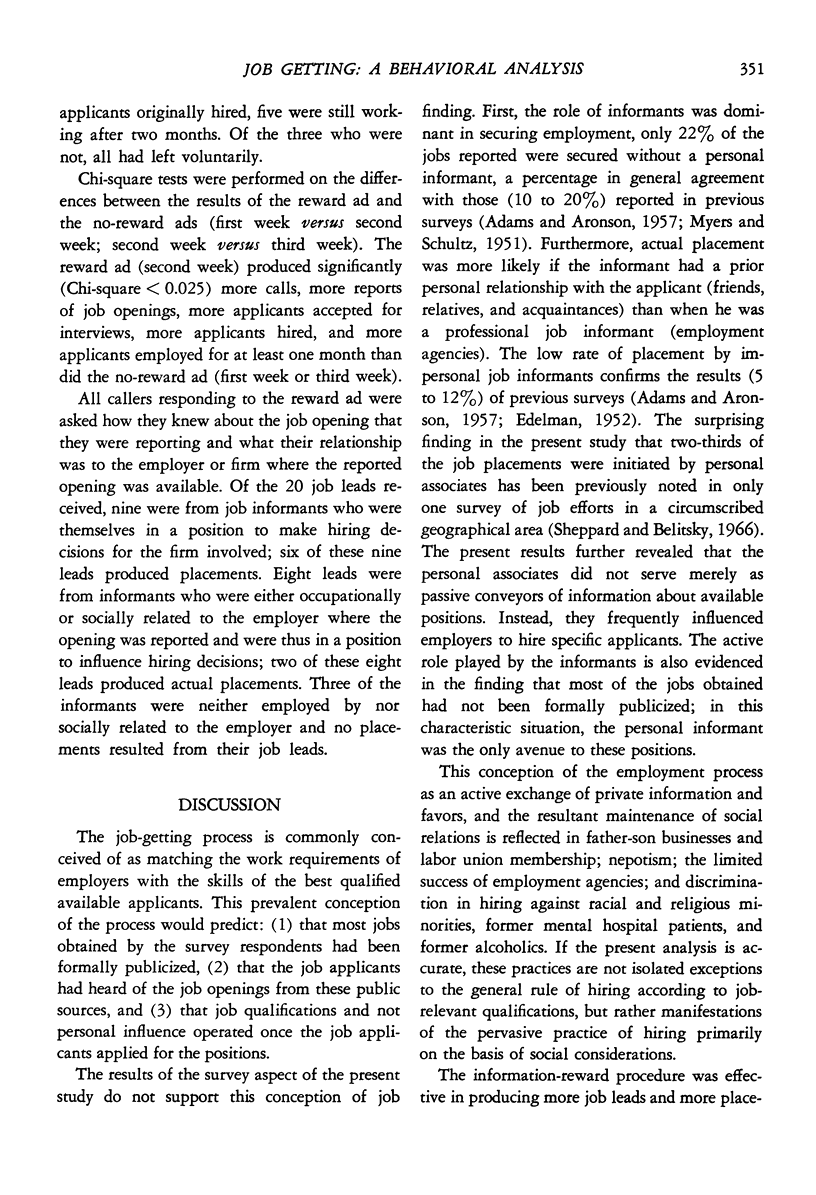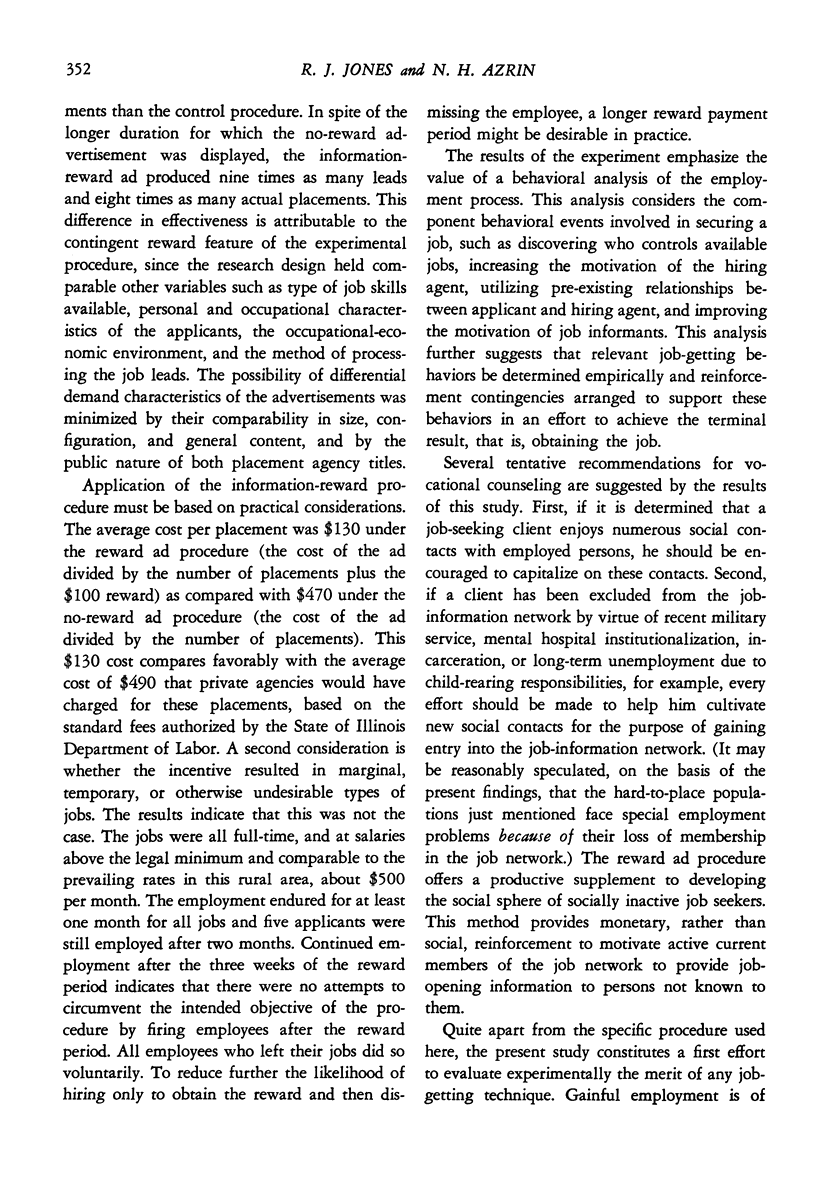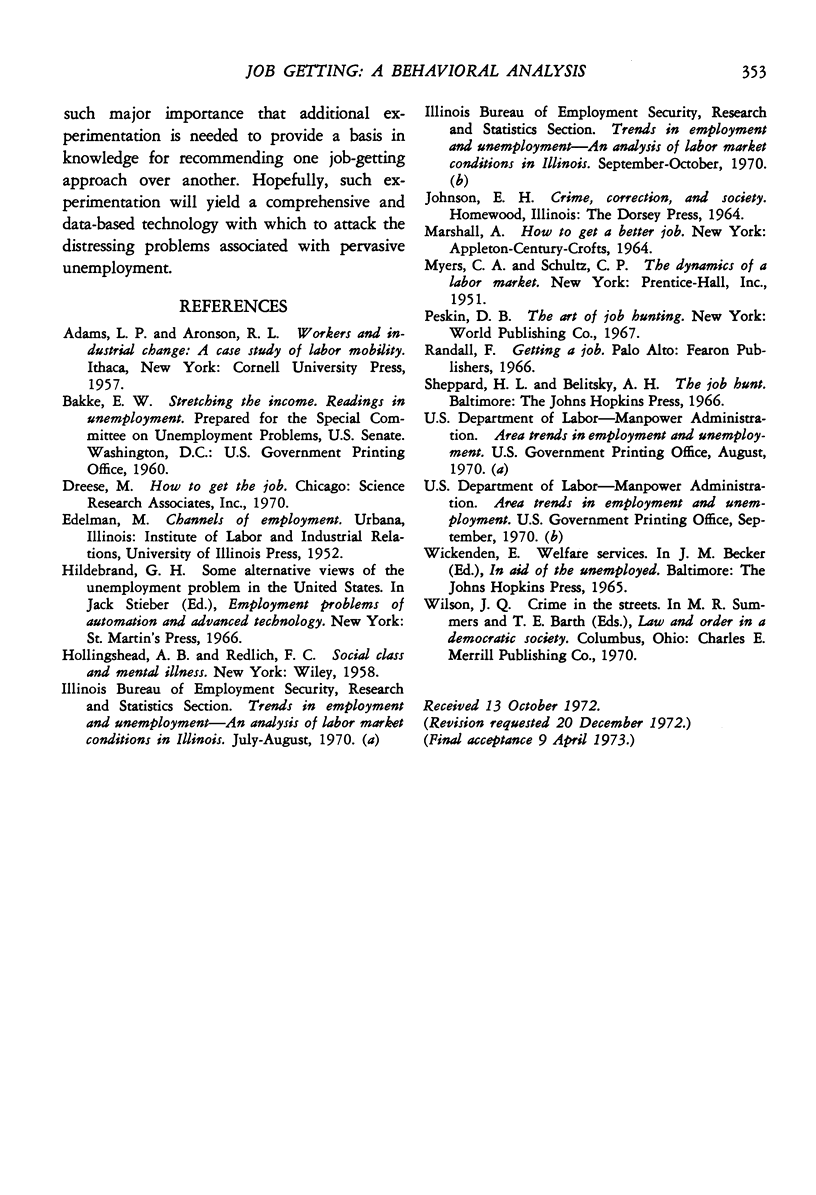Abstract
The current conception of the employment process is that positions become available, are publicized, and are filled by the most qualified job seekers. An alternative conception is proposed that social factors play a major role in the process and that job finding can be analyzed as an exchange of social reinforcers in which the first behavioral step is to locate job openings. A questionnaire survey of 120 jobs found that two-thirds of the job leads came from friends or relatives who: (1) usually knew of a specific opening (63%); (2) were themselves employed by the hiring firm (71%); and (3) actively influenced the hiring process (53%). An experimental evaluation was made of an “Information-Reward” advertisement procedure for motivating community residents to report unpublicized openings. It was found that the Information-Reward procedure produced 10 times as many job leads and eight times as many placements as a noreward control advertisement. These findings represent a first step toward a much needed technology of job finding that is based on experimental evidence and support the notion that the employment process depends on factors unrelated to work skills.
Full text
PDF